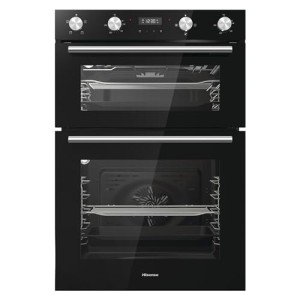10 Ways To Create Your Integrated Oven Empire
The Integrated Oven: A Comprehensive Guide
In contemporary cooking areas, the pattern towards incorporating appliances with kitchen cabinetry to produce a seamless appearance has gotten considerable traction. Among these important kitchen tools, the integrated oven stands out as a favored alternative for numerous property owners and culinary lovers. This post checks out the benefits, functions, and considerations connected with integrated ovens, as well as answering frequently asked questions.
What is an Integrated Oven?
An integrated oven is a kind of built-in oven that is designed to be flush with kitchen cabinetry. Unlike freestanding designs, which often stand apart on their own, integrated ovens are hidden or partially hid, supplying a sleek and cohesive aesthetic to the kitchen space. These ovens can be found in different designs, consisting of single, double, and steam ovens, and can be integrated with racks and cabinets for enhanced storage.
Benefits of Integrated Ovens
Integrating an oven into your kitchen style can offer numerous benefits. Here are some advantages of picking an integrated oven:
Space-saving Design:
- Perfect for smaller cooking areas, integrated ovens optimize area usage, leaving more space for other appliances or storage.
Visual Appeal:
- The flush setup creates a streamlined, modern-day look that can elevate the general atmosphere of a kitchen.
Customizability:
- Integrated ovens can frequently be tailored to match kitchen cabinetry or to consist of unique features such as pull-out shelves.
Boosted Functionality:
- Many integrated ovens come geared up with innovative cooking innovation, such as clever programs and convection heating, improving cooking results.
Increased Property Value:
- An integrated oven can enhance the value of a home, appealing to potential purchasers who have an interest in modern-day, well-equipped kitchens.
Picking the Right Integrated Oven
When selecting an integrated oven, various aspects must be considered to guarantee that the design fits your cooking needs and kitchen design. Below are some essential considerations:
Size and Capacity:
- Check the measurements of your kitchen area. Standard sizes normally range from 60cm to 90cm in width, with capacities differing based upon the number of dishes you normally prepare.
Type of Oven:
- Decide between traditional, convection, and steam ovens. Convection ovens are popular for their even heat circulation, while steam ovens retain wetness for better-flavored meals.
Features:
- Look for features that fit your cooking design. Some performances to think about include:
- Self-cleaning alternatives
- Smart innovation integration
- Numerous cooking modes
- Security features
Energy Efficiency:
- Opt for energy-efficient designs that consume less electrical power while using high performance.
Spending plan:
- Integrated ovens are available in numerous cost ranges. Identify visite site while thinking about the longevity and resilience of the home appliance.
Feature
Advised Model
Description
Self-Cleaning Function
Yes
Conserves effort and time maintaining cleanliness
Convection Cooking
Yes
Improves heat distribution for even cooking
Smart Technology
Optional
Enables control from mobile phones or voice assistant
Several Cooking Modes
Yes
Adaptability in cooking different meals
Energy Rating
A/A+
Ensures lower energy usage
Setup and Maintenance of Integrated Ovens
Proper installation and maintenance are essential for optimal oven performance. Here are some actions to consider:
Installation Steps
- Preparation: Ensure you have all the required tools and products before beginning the setup.
- Measure the Custom Space: Confirm the fit of the oven versus the cabinetry.
- Connect to Power Supply: Consult an electrical expert for safe electrical connections.
- Leveling: Ensure the oven is level to prevent cooking disparities.
- Attach Cabinet Panels: If required, connect decorative panels for a personalized appearance.
Upkeep Tips
- Regular Cleaning: Frequent cleaning avoids food buildup and guarantees the oven runs efficiently.
- Check for Damage: Inspect the door seals and interior for indications of damage routinely.
- Service Regularly: Schedule expert maintenance to maintain performance and efficiency levels.
- Follow Operating Instructions: Always stick to maker guidelines for operation and upkeep.
Frequently Asked Questions (FAQs)
What is the distinction in between a built-in oven and an integrated oven?
While both types are created to suit cabinetry, built-in ovens can stand out a little, while integrated ovens sit flush with surrounding cabinets.
Are integrated ovens more pricey than standard ovens?
Usually, integrated ovens can be more costly due to the style and features that accommodate a seamless build into the kitchen.
Can I replace my existing oven with an integrated oven?
Yes, but guarantee to consider the size and any modifications required for your kitchen cabinetry and kitchen layout.
For how long do integrated ovens generally last?
With correct upkeep, integrated ovens can last anywhere from 10 to 15 years or longer.
Do integrated ovens need special setup?
Integrated ovens frequently need professional setup to ensure they are fitted correctly with proper connections and precaution.
Integrated ovens offer a sophisticated and effective solution for contemporary kitchens, boosting aesthetic appeal while providing sophisticated cooking abilities. By thoroughly evaluating functions, setup, and upkeep, property owners can pick an integrated oven that best suits their culinary needs and design choices. With the countless designs and types available, anybody can achieve a practical space that complements their cooking way of life, making the integrated oven an exceptional investment for any home.
